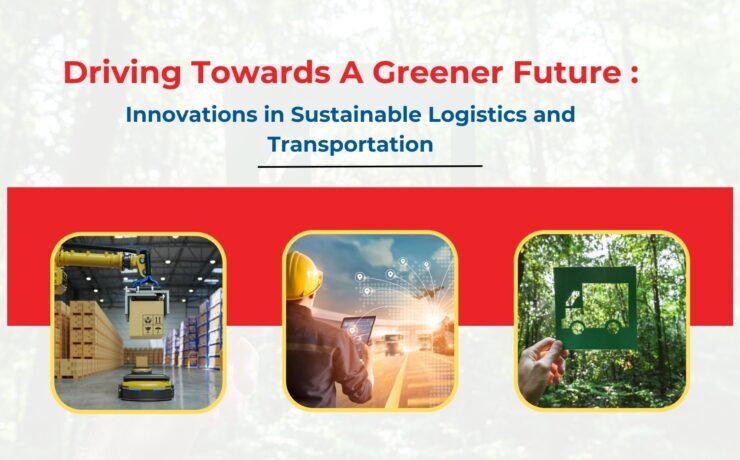Unveiling Singapore’s Rise as the Ultimate Logistics Hub

Introduction
Singapore has increasingly become the regional headquarters for numerous Multinational Corporations, solidifying its status as a prime destination for commercial endeavors. Presently this compact city-state hosts the globe’s largest transshipment container port, establishing connections with over 600 ports globally. Singapore’s Changi Airport clinched the title of the world’s best airport many times and operates approximately 6,800 flights servicing 330 cities. Moreover, the island nation’s trade volume exceeds its GDP factor of 3.5. Singapore’s emergence as a leading Logistics and transportation hub in the region is attributed to several key factors:
Table of Contents

Singapore’s Rise as the Ultimate Logistics Hub
Singapore’s Transformation into a Premier Logistics Hub
Explosive Growth in Ecommerce
Since the COVID-19 pandemic the e-commerce sector has grown considerably. Singapore, with its advanced technological landscape and flourishing logistics startups, serves as an ideal launchpad for e-commerce ventures looking to expand across Southeast Asia. By 2025, Singapore’s e-commerce market is projected to reach a staggering US$5.4 billion, Surpassing the current value of the Casino Industry. Despite this growth, logistical challenges remain a significant obstacle for many e-commerce giants. The integration of logistics into e-commerce supply chain is deemed essential for sustained growth.
Global Connectivity
Singapore boasts of extensive air and sea connectivity, making it a prominent player in the global Logistics arena. Changi Airport stands as Asia’s largest cargo airport and the world’s busiest transshipment hub, facilitating seamless trade links worldwide. With over 200 shipping lines connecting 600 ports across 123 countries, Singapore’s strategic location within a seven-hour flight radius of half the world’s population positions it as a pivotal hub for regional Logistics.
Reputation as a Secure and Reliable Hub
Singapore has garnered acclaim for the reliability and efficiency of its air and sea ports, earning a spot among the top performers in The World Bank’s Logistics Performance Index. The nation’s reputation as a secure Logistics hub has attracted major industry players, including fedEx, DHL, and UPS.
Innovative Infrastructure and Processes
Over time, Singapore’s logistics sector has built world class infrastructure and processes, always looking ahead with forward-thinking initiatives. The next Generation Port 2030 will handle 65 million shipping containers, employing advanced technologies like automated vehicles and smart sensors. In the aviation domain, plans are underway to double the airport’s capacity. Specialized infrastructure and processes are in place to incentivize air cargo.
Cold-chain centers cater to perishables, and regional express facilities to accommodate the growing e-commerce sector. Singapore initiated the world’s first National Single Window in 1989, digitizing the trade permit processes and involving over 35 government agencies. This required the government’s outlook to shift from ‘’controlling trade’’ to ‘’facilitating trade’’. Today, permits are electronically approved within minutes using a single e-document. An upgraded National Single Window is in progress to integrate Business-to-Business transactions into a single digital platform.
Government Fostering a Business-Friendly Environment
The government values private sector involvement in policy decisions, corporatization of port and airport operators has boosted responsiveness to industry needs. PSAs cargo volumes have soared post corporatization, with investments in 40 terminals globally. Singapore’s conducive investment climate and tailored incentives have attracted 20 of the world’ top 25 logistics companies. Extensive consultation with the private sector precedes public investment approval to ensure alignment with business needs. Collaboration with private sector partners ensures commercially sustainable initiatives, fostering an integrated logistics ecosystem.
Amidst a nationwide partial lockdown to combat Covid-19, the Port of Singapore remained a hive of activity, emblematic of the nation’s resilience in maintaining crucial global trade networks. Despite the pandemic’s disruptions, Singapore’s maritime sector stood strong, handling a staggering 36.9 million twenty-foot equivalent units (TEUs) of containers in 2020, nearly on par with the previous year’s 37.2 Million TEUs. Christopher Ong, Managing Director of DHL Express Singapore, remarked, “Singapore’s leadership recognized the importance of trade to our economy very early on”.
This recognition, coupled with Singapore’s world-class infrastructure, including Changi Airport’s plans to double its annual cargo handling capacity to 5.4 million tons, has solidified its status as a global logistics hub. Additionally, Singapore’s embrace of state-of-the-art technology, such as the upcoming Tuas mega port equipped to process 65 million TEUs is expected to be fully operational by 2040. Tuas as the world’s largest fully automated terminal, ensures sustainable and efficient operations with the use of advanced technologies such as AI and IoT.
DHL Express Singapore launched its WhatsApp Digital assistant to address customer’s international shipping queries instantly, allowing them to receive curated shipping information and track their shipments on the go. Robotic Process Automation(RPA)is used to deliver better customer service by reducing the delivery time.
Mr. Ong emphasized Singapore’s strategic investments, stating , “In Singapore, the government thinks in terms of generations rather than just 5 to 10 years.” Singapore’s commitment to connectivity and innovation, alongside its extensive network of Free Trade Agreements(FTAs), positions it as a Champion of global trade with a vision to connect the world.
Despite its phenomenal growth and successes the Singapore Logistics Sector face some challenges as well, such as High cross border Logistics costs, competition from neighboring countries, elevated delivery costs owing to lack of route optimization and struggle with maximizing vehicle capacity, lack of warehouse spaces, limited digitization , limited access to real-time actionable insights and delayed data reporting ,and insufficient resource utilization.
In the wake of these challenges the Former Singapore Trade and Industry Minister Chan Chun Sing, has said that given the size and connectivity of Singapore its not feasible to compete on every dimension of the Logistics sector, the plan is to target products that are high in value, time-sensitive, and require a highly reliable supply chain- this is where the companies are majorly expected to increasingly seek their services.
Singapore’s journey as a global Logistics hub amidst the trials of the Covid-19 pandemic is a testament to its resilience and forward-thinking approach. Despite the challenges, Singapore’s maritime sector has remained steadfast, handling millions of containers and maintaining its status as a key player in global trade. Through investments in top-notch infrastructure, cutting-edge technology, and extensive trade agreements, Singapore has solidified its position as a preferred destination for businesses worldwide. With ambitious projects like the Tuas mega port and continued focus on connectivity and sustainability, Singapore is poised to lead the future of global logistics.
In essence, Singapore’s success story demonstrates the importance of vision, adaptability, and strategic planning in navigating the ever-evolving landscape of international trade. Singapore is the host of the next annual edition of The TransportNext Awards, Conference and Expo 2024 which will be an excellent opportunity for the country to reinforce its position as a major hub in the Logistics Industry. This annual premier worldwide event, The TransportNext Awards, Conference and Expo is organized by Next Business Media in Singapore and the United States.
The transport and logistics community throughout the rest of the world is served by the Singapore edition. By taking advantage of Singapore’s advantageous position, it offers a forum for global cooperation and knowledge sharing. TransportNext Singapore provides enlightening talks, engaging workshops, and a large expo. It also highlights innovative solutions and promotes strategic alliances. The TransportNext Awards, which honor achievements in the sector, are the focal point. This Logistics event guarantees an unmatched networking and growth-promoting experience because of its global reach and dedication to Logistics and Transportation industry improvement.






